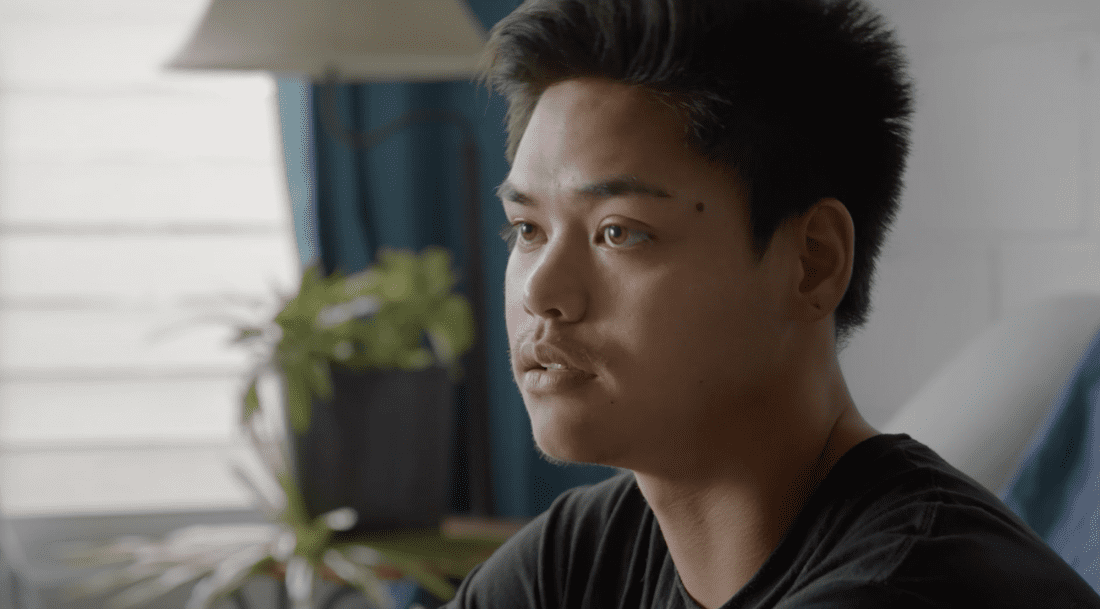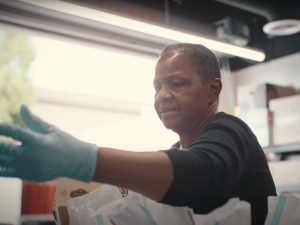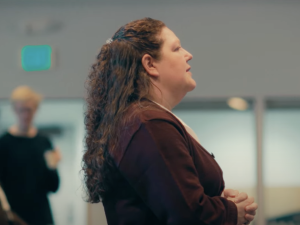When foster kids turn 18, it’s an unfortunate reality that some are kicked out of their foster homes, making them homeless on the night of their 18th birthday. Furthermore, many have no credit and no rental history, so even those that have jobs and can pay for rent still struggle to get approved for an apartment.
This is the story of Kekoa and Julissa, two young adults in Hilo, Hawaii.
All around the world, The Salvation Army is dedicated to creating community-focused solutions based on the needs of the local community. It’s no different in Hawaii, where the local staff found a creative approach to helping young adults aging out of foster care.
Below is a transcript of the video edited for readability.
Kekoa: This is how I felt growing up in the system. Like I wasn’t nothing but a case number; like I wasn’t nothing but a paycheck. My mom had me when she was 17. Men cheated on her and she didn’t know how to cope. So she would drink. And I remember I’d have to grab her from outside, bring her in, make her go shower.
I was taking care of my little sister. She’s three years younger than me. She was four, so I’d help her get ready for school, feed her, get her dressed. And then by the time it was time for me to go to school, I was just exhausted.
When I was seven years old, my mom kicked me out. It was a sense of relief in a way. I went with my family in Hamakua. They were addicted to substances, and their type of fun was they would go out and they would look for fights. I remember my uncles coming home late nights from bars, telling me how he broke someone’s orbital bone and being happy about it. I remember going to the gym and dropping a kid and being praised for it.
After I graduated, I was kicked out from my legal guardian the day or two before I turned 18. You know what she told me? I need more room in my house. That’s what she needed. She needed some storage space. So I was homeless and I was just kind of distraught.
Mary Ramos: Unfortunately, a lot of our foster youth, a lot of their caregivers decide, “Well, we’re not going to take care of you anymore. You’re 18 already, so bye.” That check that comes in every month. It goes away once they hit 18. It’s been a really big trend that we see happening now.
Roxanne Costa: Auntie Mary went out and started looking at apartment complexes saying, we have this young group of young adults, they’re working, or they going to college, but they have no financial history. They have no rental history.
How can we partner with you to get these young adults into housing? We pay the rent, the young adult signs the lease agreement, so they get rental history now, they get financial records now.
Kekoa: Think about that summer for me. I went from graduating, being kicked out and being homeless, and then two weeks before college starts, Auntie Mary pulled through with an apartment. I just cried. I just cried. I couldn’t believe it.
Roxanne Costa: The great part that is happening is a lot of our young adults who have taken occupancy in our apartments. They don’t want to leave it. So they just take over the rent at that point. Once they graduate from our program and it becomes them. And we step out and we go find another apartment for the next young adults needing housing.
Jalissa Delpo: My name is Jalissa Delpo. My son Jeremiah is one years old. He’s just been the light of our lives. We don’t really like to ask for help because I don’t want someone to use that against me. But I know that when I ask the Aunties, they’re just genuinely here to help the foster youth.
Roxanne Costa: She’s one that’s persevered through a lot. We had a severe thunderstorm, lightning. She and her infant slept in her car at one of our parks, and the next morning, Auntie Mary found out, and she came to me, she was like, Boss, I got to go get her. You go get her and you bring her here.
Jalissa Delpo: It was just frustrating because it’s like I’m a mom. I’m supposed to be, like, stable, able to take care of my baby. And it makes me feel kind of like a failure. I don’t want to feel like that.
Roxanne Costa: We know she’s doing the best she can to get to where she wants to be.
Mary Ramos: We try to give them the all around startup kit, to help them to move on and transition to adulthood, because that’s not something easy to do when you’re on your own. We give them bedding, we give them things to clean their apartment. A lot of them needed to be reminded. Check your mail, you know, how to wash your clothes, make sure your utilities are paid.
Jalissa Delpo: They ask for us to work hard. You got to work hard to get what you want. So I don’t mind that.
Kekoa: I got my apartment, I got into College, I got a vehicle, I got a job, and I was doing solid. I was doing solid for two years, and then something along the way kind of threw me off path. But I’m trying to get back onto the right path now. I’m trying my best.
Roxanne Costa: Now when they’re trying to be a young adult, it’s like, I don’t have anyone. So they look back at, you know, my parents gave me up for adoption, why?
Jalissa Delpo: I think she just wasn’t ready for us. No matter what, I still love my mom.
Kekoa: I remember late nights having nobody, just wanting love for my mom and my family and just praying, praying until I could fall asleep. She didn’t know how to raise a child because she was a child herself. She didn’t know how to deal with how she treated me because she didn’t deal with how she was being treated.
I think I would have fell into dope or killing myself a long time ago if it wasn’t for God. Because if there wasn’t a belief in my heart that there is something greater out there, then there would have been no excuse for me to not cause havoc.
My whole life, I’ve felt out of control of the chaos and tragedy. I had no sanctuary, no safe place. But when I had this, this was my first. This is mine. Yeah, of course, if I don’t keep up with my bills it’s going to get taken away from me. But I’m in control of that.
Jalissa Delpo: I really like that I don’t need anyone telling me what to do. I love the freedom because when you’re in foster care, there’s always someone telling you what to do, when to do it. Since my husband will be going to the Air Force soon, I think we’ll be okay and secure.
Mary Ramos: At least 90% have completed the program successfully and have moved on or continued to rent where they’re renting or are buying a home of their own right now.
Roxanne Costa: When you raise your kids, it doesn’t end at 18. To your dying day you’re going to be a part of their family. So we got to take them all to the next step because we all had someone in our life that guided us to the next step to who we are today. So we became that agency. We became that staff that continue to move this generation to be young, successful adults.
Mary Ramos: It makes my heart rejoice, giving them a fresh start at a new life at something that is their own.
Do Good:
- See more videos like this in our video feed.
- Learn how The Salvation Army fights homelessness.
- Did you know The Salvation Army served more than 23 million Americans last year fighting hunger, homelessness, substance abuse and more—all in a fight for good? Where can you help? Take our quiz to find your cause and learn how you can join in today.












